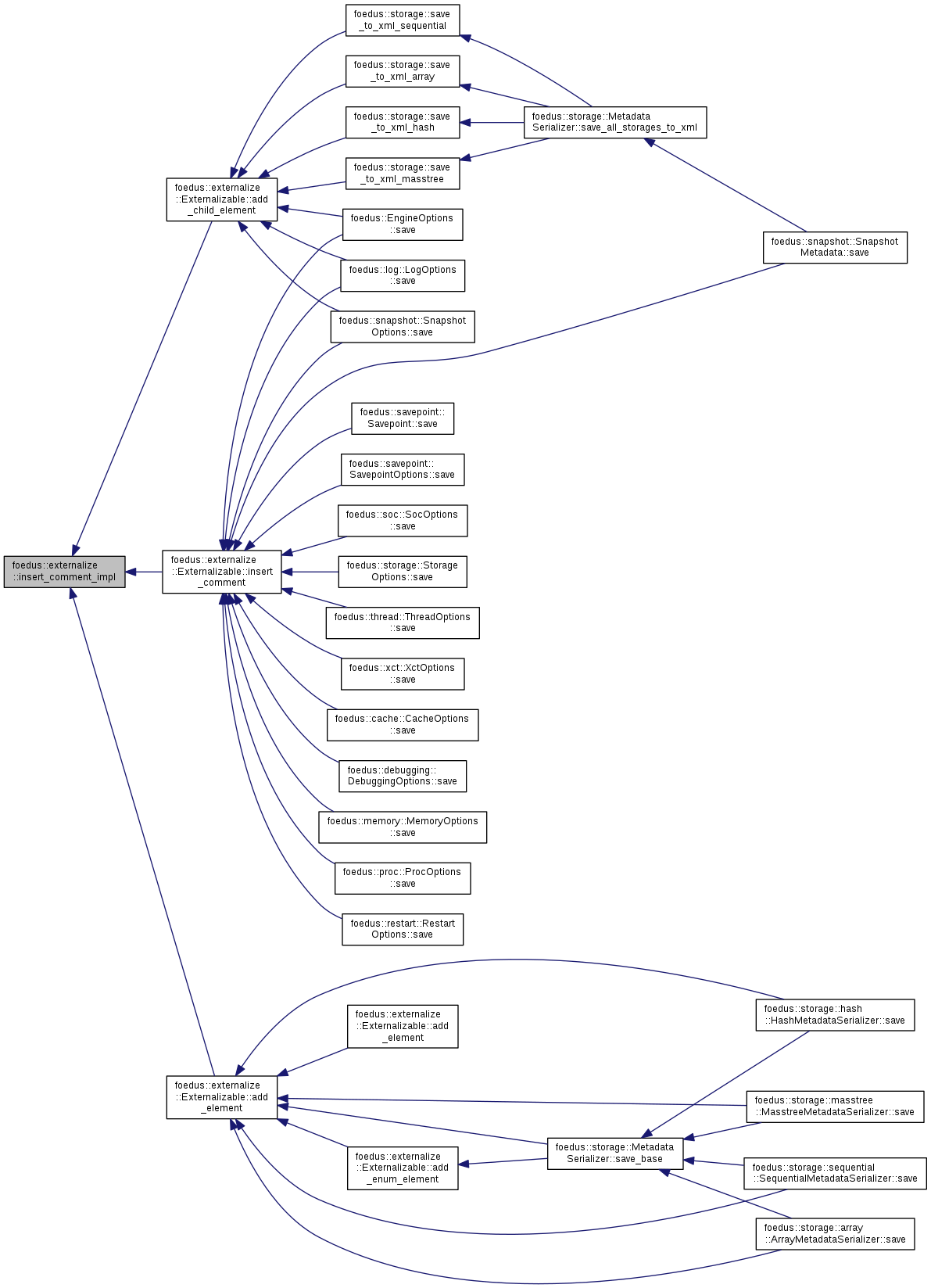|
libfoedus-core
FOEDUS Core Library
|
|
libfoedus-core
FOEDUS Core Library
|
Object Externalization. More...
Object Externalization.
Classes | |
| struct | Externalizable |
| Represents an object that can be written to and read from files/bytes in XML format. More... | |
| struct | TinyxmlGetter |
| Functor to help use tinyxml2's Element QueryXxxText(). More... | |
| struct | TinyxmlGetter< assorted::FixedString< MAXLEN, CHAR > > |
| struct | TinyxmlGetter< bool > |
| struct | TinyxmlGetter< double > |
| struct | TinyxmlGetter< float > |
| struct | TinyxmlGetter< int16_t > |
| struct | TinyxmlGetter< int32_t > |
| struct | TinyxmlGetter< int64_t > |
| struct | TinyxmlGetter< int8_t > |
| struct | TinyxmlGetter< std::string > |
| struct | TinyxmlGetter< uint16_t > |
| struct | TinyxmlGetter< uint32_t > |
| struct | TinyxmlGetter< uint64_t > |
| struct | TinyxmlGetter< uint8_t > |
| struct | TinyxmlSetter |
| Functor to help use tinyxml2's Element SetText(). More... | |
| struct | TinyxmlSetter< assorted::FixedString< MAXLEN, CHAR > > |
| struct | TinyxmlSetter< std::string > |
Functions | |
| template<typename T , typename LARGEST_TYPE , typename LARGEST_GETTER > | |
| tinyxml2::XMLError | get_smaller_int (const tinyxml2::XMLElement *element, T *out) |
| ErrorStack | insert_comment_impl (tinyxml2::XMLElement *element, const std::string &comment) |
| tinyxml2::XMLError foedus::externalize::get_smaller_int | ( | const tinyxml2::XMLElement * | element, |
| T * | out | ||
| ) |
Definition at line 57 of file tinyxml_wrapper.hpp.
| ErrorStack foedus::externalize::insert_comment_impl | ( | tinyxml2::XMLElement * | element, |
| const std::string & | comment | ||
| ) |
Definition at line 159 of file externalizable.cpp.
References CHECK_OUTOFMEMORY, and foedus::kRetOk.
Referenced by foedus::externalize::Externalizable::add_child_element(), foedus::externalize::Externalizable::add_element(), and foedus::externalize::Externalizable::insert_comment().
